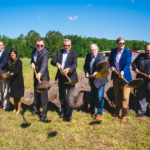When we first brought up the idea of doing what we call a “Dining Feature story” about his Cold Stone Creamery location off (but visible from) Bruce B. Downs (Blvd.)
Martha Tapia, Ph.D., and her Community Family Counseling provides family counseling to help with a variety of mental and emotional issues for children, adults, couples and families. She also is
Neighborhood News deadlines are almost never easy for yours truly, but the deadline week to get our July 9 Wesley Chapel issue to the printer was surely more challenging than
Judge ‘Quashes’ County Commission’s Decision To Prevent Rezoning Of The Golf Course. So, What’s Next? Long-time Pebble Creek resident Leslie Green is still in limbo, but it’s nothing new for
So, with still three weeks left before the end of the sweltering summer and your younger kids have to go back to school, where can you take them for a




















